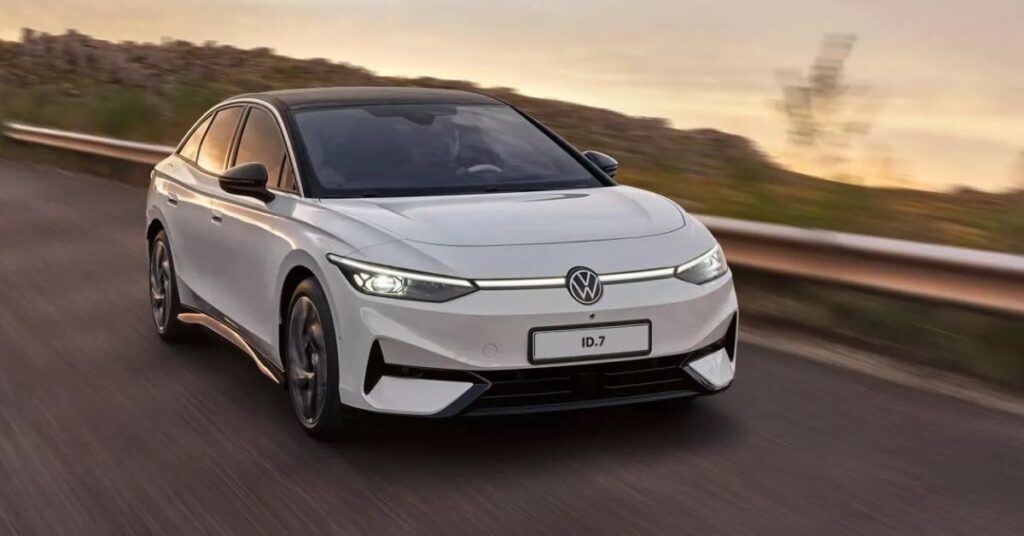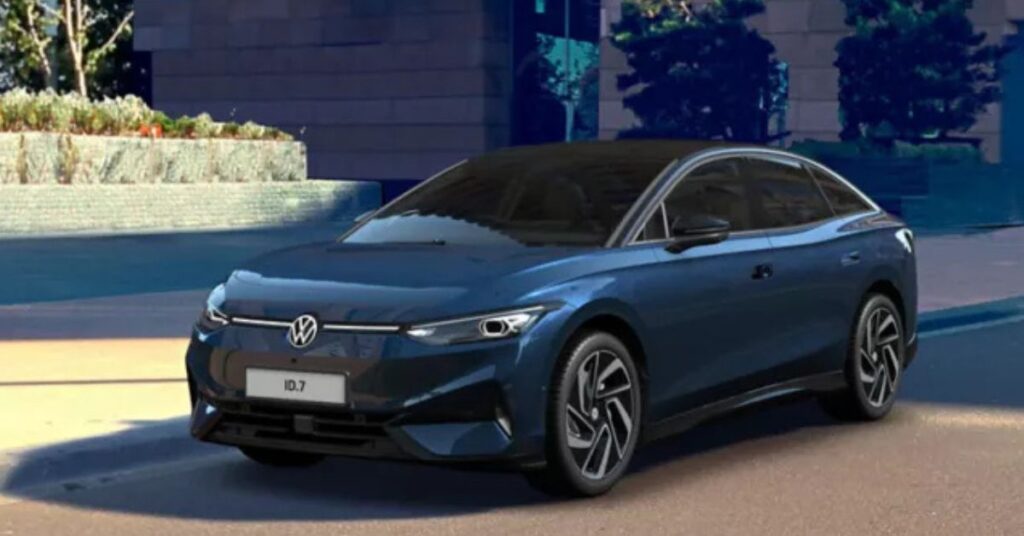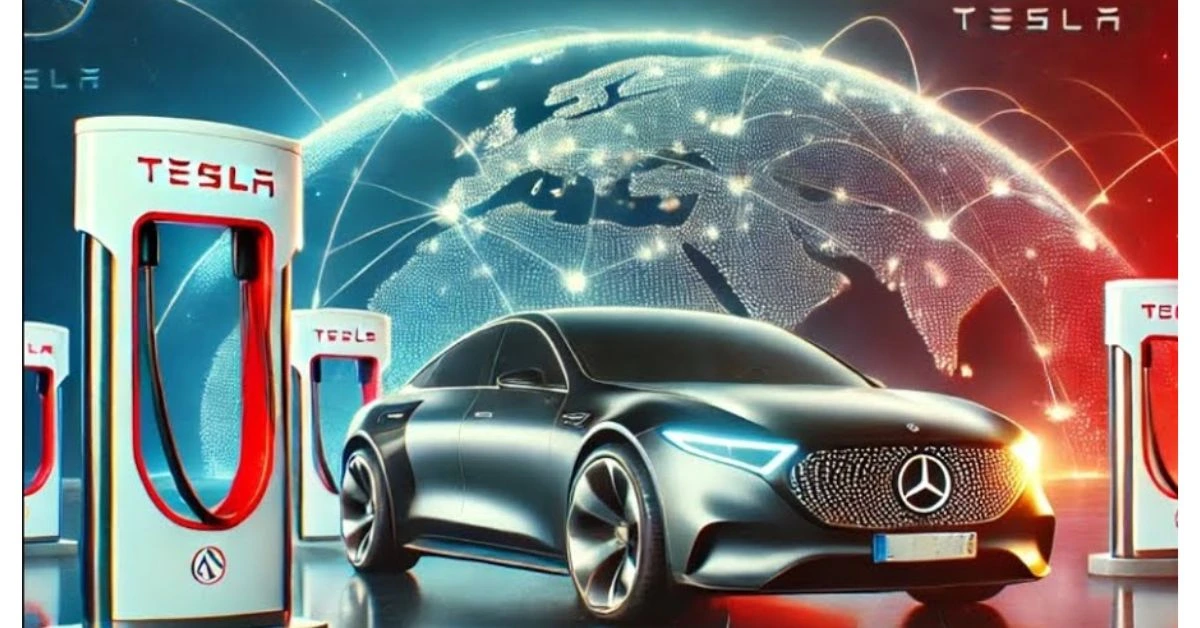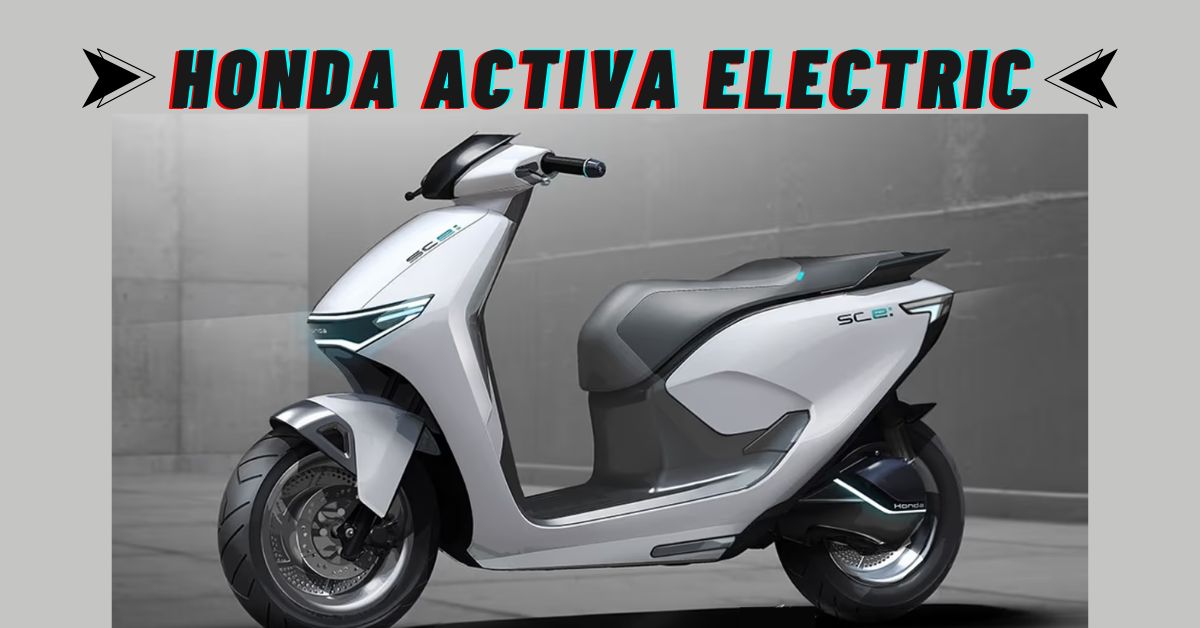Volkswagen Cancels ID.7 North American Launch Plan
Volkswagen has confirmed that it will not be launching the highly anticipated Volkswagen ID.7 electric sedan in North America. This decision marks a significant shift in the automaker’s strategy, as the company had initially planned to introduce the ID.7 to the U.S. and Canadian markets in 2024. However, due to new tariffs and the Trump administration’s stance on electric vehicles, Volkswagen has decided to halt the ID.7’s North American debut. This move has raised concerns about the region’s future of electric vehicles (EVs).
In this article, we’ll take a closer look at the reasons behind the cancellation, how the EV market in North America is shifting, and what this means for Volkswagen’s future in the region.
Table of Contents
Why Did Volkswagen Cancel the ID.7’s North American Launch?

Volkswagen had high hopes for the ID.7 in the North American market. This sleek electric sedan was initially set to compete with other electric sedans like the Tesla Model 3, Polestar 2, and Hyundai Ioniq 6. The ID.7 was intended to be the German automaker’s flagship EV in the U.S., following the success of the ID.4 SUV. However, after several delays and the announcement of an indefinite postponement in May 2024, Volkswagen confirmed the cancellation of the ID.7 launch in North America.
Volkswagen Cancels ID.7 North American Launch: Key Reasons for the Cancellation:
- Challenging EV Climate: Volkswagen’s spokesperson stated that the ID.7 was canceled due to the “ongoing challenging EV climate” in North America. This was further complicated by new tariffs and general uncertainty in the EV market under the Trump administration, which has been vocal about rolling back policies supporting electric vehicles.
- Political and Economic Factors: The introduction of new tariffs on foreign-made electric vehicles, along with the political tension between the U.S. and other countries, particularly China, made the launch of the ID.7 in North America less viable for Volkswagen.
- Market Preferences: There’s also the matter of market preferences. Americans tend to prefer SUVs and trucks over sedans, a factor that likely contributed to Volkswagen’s decision to reconsider launching a sedan in the U.S. market.
- High Costs: The expected price of the ID.7, between $50,000 to $60,000, could be too high for the North American market, especially when competing with established brands like Tesla.
In a statement from Volkswagen, a spokesperson confirmed the decision, saying:
“Due to the ongoing challenging EV climate, Volkswagen has decided to no longer offer the ID.7 to the North American market.”
The Impact of New Tariffs and Trump’s Policies
A major factor in Volkswagen’s cancellation of the ID.7 North American launch was the new tariffs and the political climate under the Trump administration. The US government’s focus on reducing clean energy initiatives has made it more challenging for foreign automakers to enter the EV market without incurring significant additional costs.
Trump’s policies, which include efforts to roll back fuel economy standards and discourage the expansion of electric vehicles, have added a layer of uncertainty to the US EV market. This uncertainty has likely influenced Volkswagen’s decision to prioritize markets where the climate for electric vehicles is more favorable.
Volkswagen’s EV Future Plans in North America
Volkswagen Cancels ID.7 North American Launch Plan, Despite this setback with the ID.7, Volkswagen has made it clear that it is not abandoning its EV strategy in North America. A spokesperson emphasized, “Electric vehicles continue to be a core part of Volkswagen’s long-term product strategy, and new electric models will continue to be introduced for this market.”
VW has already made strides with its ID.4, an electric SUV that has gained traction in the U.S., and the company has plans for other EVs, including the ID. Buzz electric van. These vehicles could potentially fill the gap left by the ID.7, catering to the growing demand for electric SUVs and crossovers.
Volkswagen’s New Focus: EVs in Europe and China
While North America will not see the ID.7, Volkswagen is still focusing heavily on the electric vehicle market in Europe and China. The ID.7 sedan continues to perform well in these regions, where sedans are more popular, and EV adoption is growing rapidly.
In Europe, the ID.7 has already become a top seller, securing a significant portion of the market. Volkswagen plans to continue expanding its electric offerings in these regions, aiming to meet the increasing demand for sustainable vehicles.
What Does This Mean for the Future of EVs in North America?
The Volkswagen ID.7 was expected to be a direct competitor to established models in the U.S., such as the Tesla Model 3 and the Polestar 2. Despite its strong performance in Europe and China, where it has seen positive sales, the ID.7 North American launch plan was disrupted by economic and regulatory factors. The EV market in the U.S. is currently experiencing rapid growth, but it also faces challenges, especially for non-SUV vehicles.
Volkswagen had hoped to position the ID.7 as an alternative to the popular ID.4 electric SUV. However, market trends in the U.S. have shown a preference for larger vehicles, which may have made the sedan format of the ID.7 less appealing to American consumers. The decision to scrap the U.S. launch reflects the automaker’s careful consideration of shifting market dynamics.
Here’s a quick breakdown of the situation:
| Factor | Impact on ID.7 Launch |
|---|---|
| Tariffs | Increased production costs |
| Trump Administration Policies | Uncertainty for EV sales |
| Consumer Preferences | Strong demand for SUVs over sedans |
| Market Competition | High competition from Tesla, Polestar, and Hyundai |
The Volkswagen ID.7: Specification and Features

The ID.7 sedan promised to bring a stylish, electric alternative to the market, boasting an impressive 300-mile range and powerful performance. It was meant to compete directly with Tesla’s Model 3 and Polestar 2.
While the U.S. will not see the sedan, it remains available in Europe and China, where demand for sedans and electric vehicles is on the rise.
ID.7 Features:
- Estimated range: 300 miles on a single charge
- 282 horsepower in the base model (single motor)
- Dual motor all-wheel-drive option
- Available in both sedan and Tourer (wagon) versions
- Pricing expected to be $50,000–$60,000
Read more: EHang Electric Air Taxi: Launch of the World’s First Autonomous Flying Car
FAQs
Why was the Volkswagen Cancels ID.7 North American Launch?
Volkswagen canceled the ID.7 due to the “challenging EV climate” in North America, influenced by tariffs, political factors, and consumer preferences for SUVs over sedans.
Will the Volkswagen ID.7 be available in other markets?
Yes, the ID.7 will continue to be sold in Europe and China, where it has received strong demand.
What other electric vehicles is Volkswagen offering in North America?
Volkswagen’s current electric offerings in North America include the ID.4 SUV and the ID. Buzz, with more electric models, is planned for the future.
What are the main features of the ID.7?
The ID.7 features a range of approximately 300 miles, with a starting price expected between $50,000 and $60,000, and is positioned as a competitor to the Tesla Model 3.
How will the cancellation of the ID.7 affect Volkswagen’s presence in the US?
While the ID.7’s cancellation is a setback, Volkswagen will continue to expand its electric offerings, with a focus on SUVs like the ID.4 and the ID. Buzz.



